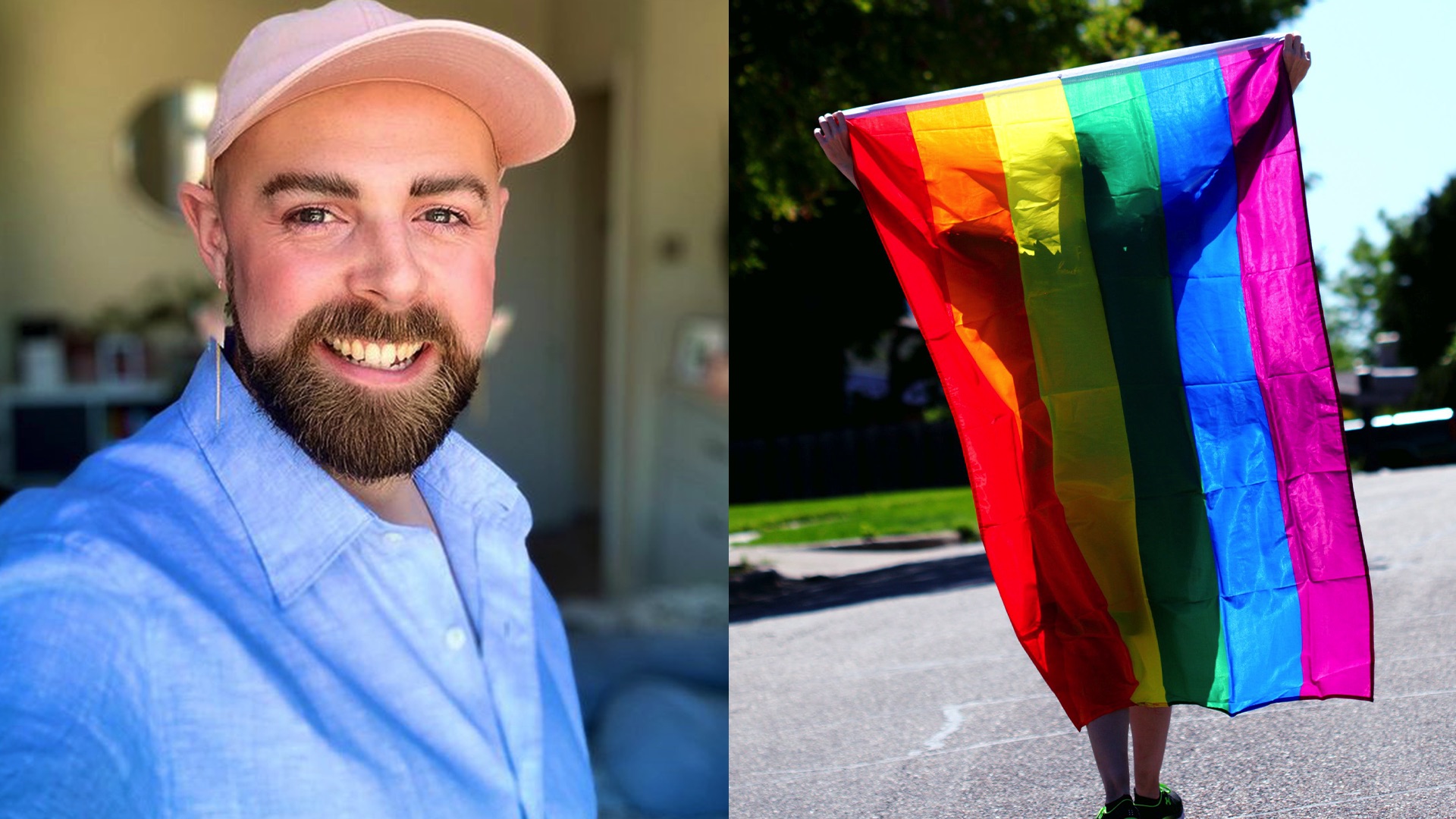Pop’n’Olly lead responds to negative backlash over LGBTQ school sessions
Exclusive: The Workshops & Training Lead at Pop'n'Olly shares with Attitude "It's tough on me personally" having to defend their identity from "aggressive" questions about LGBTQ-inclusive education

A member of the company Pop’n’Olly has spoken about the negative response they got at a recent talk about LGBTQ-inclusive education with parents of children of a Kent school.
Last week Jack Lynch, Pop’n’Olly’s Workshops & Training Lead led a session with parents of children from Meopham Community Academy. The Academy is run by The Golden Thread Alliance Trust.
The session was designed to walk parents through what lessons Pop’n’Olly would be teaching children and answer any questions specifically about the content.
“It’s about empowering all the children, parents, teachers, and carers”
“For the most part, it was very positive,” Jack told Attitude on Friday (8 December) “The reason why we have done that parents meeting is to provide transparency in terms of what is being delivered.” Jack pointed to misreporting in the media about LGBTQ-inclusive education previously as reasoning for this.
The sessions differ based on the age group of pupils. Early years groups are introduced to all kinds of families, including same-sex families, as well as children who may live with their grandparents or other relatives. In Key Stage 1 classes, children are taught about gender stereotypes (in simple terms) such as that anyone can have any job or play with any toy.
In years 3 and 4 at Key Stage 2, children are introduced to gender stereotypes from a personal angle. Jack explained to Attitude that this includes more of their own personal story as to how they felt being LGBTQ at school. Ultimately, the focus is on the different ways to be human.
In years 5 and 6, the latter part of Key Stage 2, there is more clarity about definitions of LGBTQ including sexual orientations, being transgender and non-binary. These are also discussion-led sessions with the children.
Pop’n’Olly also includes statistics from charities such as Just Like Us about young LGBTQ+ people’s mental health, with Jack referencing Just Like Us’ Growing Up LGBT+ report and also its Positive Futures report.
“It’s about empowering all the children, parents, teachers, and carers,” Jack went on to explain. “It’s really about providing the most positive message possible for children around accepting and understanding that everybody is different.”
“Dealing with difficult questions from parents is always tough. It’s tough on me personally”
And while many of the parents in the recent session were supportive of LGBTQ+ inclusive education, some were less so. Jack said some came to the table with very “aggressive” questioning about the content and concerns.
“Dealing with difficult questions from parents is always tough. It’s tough on me personally,” Jack, who identifies as trans and non-binary, continued. “When parents are questioning whether transgender exists, or whether LGBT+ people exist.
“As someone who is openly and proudly transgender and nonbinary, that’s very tough. But it’s remembering that what we are doing here is providing positive messaging for these children.”
Sadly, Jack wasn’t surprised by the negativity, having experienced it before in sessions. But they stressed it was “very much the minority of parents” on the call. Jack also said the company had received positive feedback since the call from both parents and the Academy with many saying they felt empowered. “That is why we’re doing what we’re doing, to allow parents to feel that way,” Jack added.
“There was one parent in particular, who spoke out about his own experience of being gay at school, being an adoptive parent in a same-sex relationship, and the effect that the lack of positive representation school had on his life. That was lovely to hear that experience shared and reflected back at me,” Jack detailed.
“We felt incredibly supported by the Trust and the school” – Jack Lynch on LGBTQ-inclusive education
As of September 2020, relationship education has been compulsory for all primary schools. The Department of Education’s guidance applies to all schools, including independent and faith schools.
The focus at the primary level is on “teaching the fundamental building blocks and characteristics of positive relationships, with particular reference to friendships, family relationships, and relationships with other children and adults.”
The guidance also stipulates that when it comes to talking about families children should learn that “others’ families, either in school or in the wider world sometimes look different from their family, but that they should respect those differences and know that other children’s families are also characterised by love and care.”
Jack said: “The guidance is very clear that any relationships education for schools should be about understanding difference, and respecting difference with regards to everyone.”
Primary schools are free to determine when to include LGBT content but the guidance says “it is expected that all pupils have been taught LGBT content at a timely point as part of this area of the curriculum.”
Addressing this, Jack said that given often grim statistics about young people’s mental health, and the prevalence of LGBTQ-based bullying, it’s “really important work to do with younger children.”
Jack also praised Meopham Community Academy and The Golden Thread Alliance Trust for supporting Pop ‘n’ Olly.
“It’s really important to say that both the school and the trust are extremely positive about the work that we’re doing and extremely positive about bringing LGBT+ representation in primary school. We felt incredibly supported by the Trust and the school in the backlash of some of these comments.”
Attitude has contacted The Golden Thread Alliance Trust for comment.
